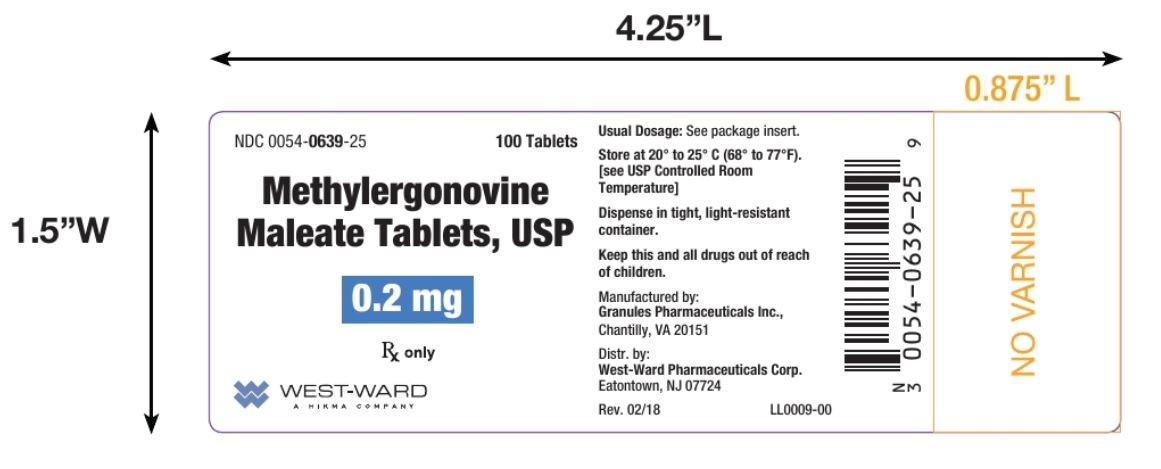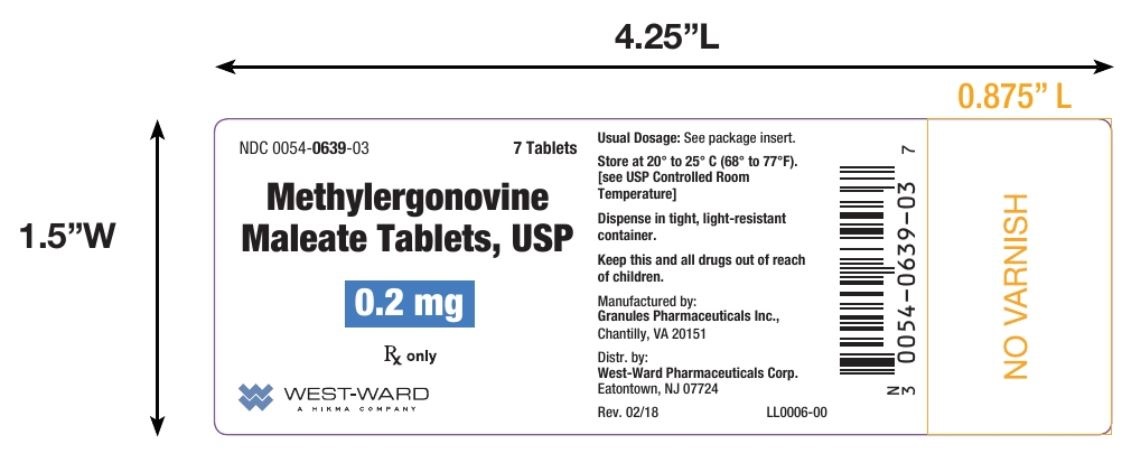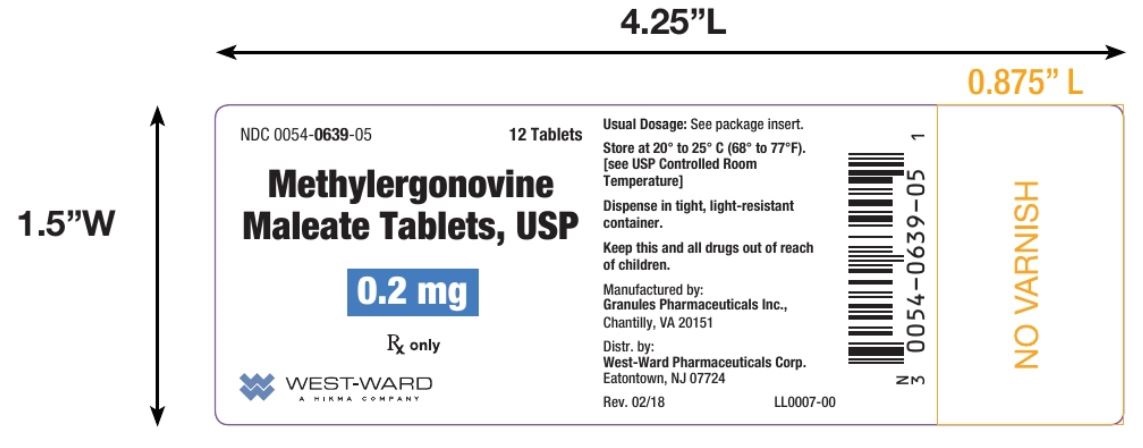
Methylergonovine Maleate Tablet while Breastfeeding
What is Methylergonovine Maleate Tablet used for?
Methylergonovine Maleate Tablet while breastfeeding safe or not? Can there be any side effects for infant while using it during breastfeeding?

NURSING MOTHERS Mothers should not breast-feed during treatment with methylergonovine maleate and at least 12 hours after administration of the last dose. Milk secreted during this period should be discarded.
Methylergonovine Maleate Tablet Breastfeeding Analsys
Methylergonovine maleate while Breastfeeding
Low RiskCAS Number: 113-42-8
Ergot derivative which is used in the prevention and treatment of postpartum hemorrhage. It is not excreted into breast milk in clinically significant amount (Erkkola 1978) and, besides the information offered by the manufacturer, no reliable publications were found about problems in infants whose mothers were treated. There is a controversy on an antiprolactin effect and its ability to decrease milk production found by some authors (Peters 1979, Döner 1979, Weiss 1975).Some have published an association with a decreased in duration of breastfeeding though not in the percentage of initiation (Brown 2014, Jordan 2009) nor a decrease in weight gaining (Arabin 1986).Others did not find a decrease in prolactin level (Javier del Castillo 1985, Del Pozo 1975), nor difference in the rate of exclusive breastfeeding or monthly weight gain (González1984), considering that the treatments limited to the first week postpartum that use a low dose do not affect lactation or the infant. It has frequent side effects (nausea, vomiting, headache, hypertension) that do not occur with oxytocin, so the latter is preferable to reduce the risk of postpartum hemorrhage. There are insufficient data to know whether immediate breastfeeding is effective for this type of prevention (Chelmow 2011).They have occurred serious poisonings in infants when giving directly both orally or intramuscularly due to confusion with other medication for newborns (Aeby 2003).
Methylergonovine Maleate Tablet Breastfeeding Analsys - 2
Methylergonovine maleate while Breastfeeding
CAS Number: 113-42-8

Limited information indicates that maternal doses of methylergonovine up to 0.75 mg daily produce low levels in milk. Product labeling in the U.S. currently recommends avoiding breastfeeding for 12 hours following the last dose of methylergonovine. This warning appears to be based on unpublished adverse reactions in breastfed infants after several days of maternal methylergonovine therapy. The use of shorter courses of the drug after delivery during the colostral phase of lactation are not expected to transfer appreciable amounts of drug to the breastfed infant or risk adverse effects in the infant. The lack of infant side effects was documented in one case-control study. Long courses of methylergonovine, especially after the milk comes in, are best avoided in mothers who wish to nurse. When they are required, withholding breast feeding for 12 hours following the last dose of methylergonovine is prudent. If adverse reactions in the breastfed infant are seen, such as tachycardia, vomiting, diarrhea or agitation, the drug should be discontinued. Some sources recommend avoiding methylergonovine altogether during breastfeeding.[1] Although results of several imperfect studies are somewhat mixed, it appears that methylergonovine can decrease serum prolactin and possibly the amount of milk production and duration of lactation, especially when used in the immediate postpartum period. The effect seems to be related to the dosage and route of administration, with injected doses having a greater impact than oral. A short course immediately postpartum does not appear to have a detrimental effect on lactation.

I am nursing mother and I have already used Methylergonovine Maleate Tablet, what should I do?
During whole lactation period you shall first discuss with your doctor and then together you shall decide whether you shall take that drug or not however if you have already taken Methylergonovine Maleate Tablet then you shall inform your doctor, But you should not be worried too much as Methylergonovine Maleate Tablet comes in category of low risk drug.
I am nursing mother and my doctor has suggested me to use Methylergonovine Maleate Tablet, is it safe?
Though Methylergonovine Maleate Tablet dose not comes in category of safe drugs rather it comes in category of low risk but if your doctor is aware that you are breastfeeding your baby and has still recommended it then its advantages must be outweighing the risks.
If I am using Methylergonovine Maleate Tablet, will my baby need extra monitoring?
Not much
Who can I talk to if I have questions about usage of Methylergonovine Maleate Tablet in breastfeeding?
US
National Womens Health and Breastfeeding Helpline: 800-994-9662 (TDD 888-220-5446) 9 a.m. and 6 p.m. ET, Monday through Friday
UK
National Breastfeeding Helpline: 0300-100-0212 9.30am to 9.30pm, daily
Association of Breastfeeding Mothers: 0300-330-5453
La Leche League: 0345-120-2918
The Breastfeeding Network supporter line in Bengali and Sylheti: 0300-456-2421
National Childbirth Trust (NCT): 0300-330-0700
Australia
National Breastfeeding Helpline: 1800-686-268 24 hours a day, 7 days a week
Canada
Telehealth Ontario for breastfeeding: 1-866-797-0000 24 hours a day, 7 days a week
